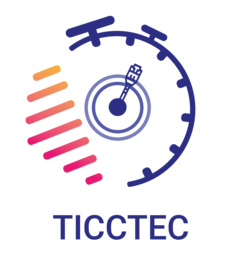TICCTEC
Time Sensitive Communication in Campusnetworks for Teleoperated Control
Project description:
TICCTEC aims to integrate Time-Sensitive Networking (TSN) into 5G campus networks in combination with Device-to-Device communication, based on 5G O-RAN and an open source core. By combining these technologies in the modular technology building blocks of CampusOS and open source code or open interfaces, security, reliability and resilience in campus networks will be increased and latency reduced. The integration of TSN is intended to replace proprietary fieldbus systems with standard Ethernet connections in the long term. The integration of TSN and 5G will also enable wireless deterministic transmission of data in the network. The modules developed in TICCTEC are implemented in three use cases:
• the remote control of an autonomously operating robot cell,
• the remote control of an AGV (Automated Guided Vehicle) as a proof of concept for remote control of a vehicle, and
• the ad-hoc transmission of data between devices in the network
to improve bandwidth efficiency, reduce connection losses and open up additional communication paths. By using open standards and open source implementations, application developers are provided with a platform on which new use cases can be easily integrated into the campus infrastructure.
Market perspective and product promise:
Real-time communication in networks for automation is becoming increasingly important. Germany, as a leading nation in the field of automation, should retain this global status. Thus, the linking of low-latency, resilient wireless communication and real-time capable Ethernet-based networks is of great importance. The development of the TSN functionalities, the application-oriented research within TICC-TEC enables the exploitation of the project results. The fact that this development takes place in Germany and the results are made available to German industry in the subsequent exploitation process promotes international competitiveness. The use and implementation of TSN translators, Robo Operator ® and the results will create new jobs or enable production to continue where skilled workers are lacking due to demographic change. This exploitation of the research results can take place in a wide variety of industries, such as production, logistics, construction sites or agriculture. Thus, the developed building blocks can be made available to different markets. The market potential is thus extremely high.
Challenge and innovation:
TICCTEC will drive the convergence of automation and network technology with the integration of TSN into 5G campus networks. For this, own components in the form of software modules have to be developed and tested. Likewise, TSN in 5G campus networks will be extended to include D2D communication, thus enabling additional communication paths. The main challenge is the integration of the 3GPP specification according to Rel. 16 with the IEEE 802.1Q versions defined as TSN standards. The modules developed here are to be added to the CampusOS technology toolbox.
The innovation lies in the subsequent deterministic wireless transmission in the mobile network with upstream TSN network for the following use cases: Remote control of a robot cell in industrial manufacturing, remote control of an AGV or vehicle and data acquisition and direct control loops using D2D com-munication in a 5G campus network.
Use Cases:
TICCTEC focuses on three use cases: remote control of an autonomous robot cell, remote control of an AGV and direct data transmission in a 5G network. These use cases are important in production, logistics or the construction industry. To ensure transmission and thus device safety, the technologies developed in TICCTEC must be used in the use cases.
Consortium:
The consortium consists of the Deutsche Telekom Chair for Communication Networks at TU Dresden and the Fraunhofer Institute for Machine Tools and Forming Technology IWU as research institutions. The participating industrial partners are Qualcomm CDMA Technologies GmbH and Industrie-Partner GmbH Coswig. Robert Bosch GmbH is involved in the project as an associated partner.
Duration
April 2022 - March 2025
Budget
Total funds: 3.0 million €
Funding amount: 1.9 million €
- Recommend this page:
- Print view
